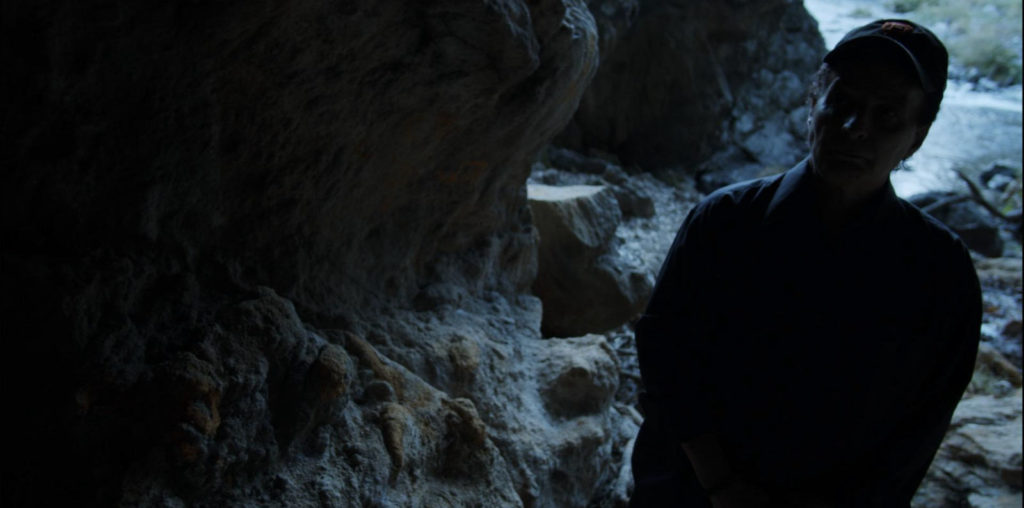
Literally the only thing preventing me from flying north of the border and kicking director Anthony Couture’s Canadian butt is the fact that he’s peopled his meditative — i.e., slow as molasses — film “Red Deer” with an assortment of troubled individuals who are as odd as they are captivating.
The townspeople themselves carry enough baggage to keep a hotel porter busy for days. Marion’s an orphaned social misfit who’s lived at the same boarding house for eighteen years, performing magic tricks to amuse his elder landlady and her friends. His brother Nigel wiles away his lonely days at his bookstore, making half-hearted efforts at conversation with his female customers and reciting poetry to anonymous 1-900 women. Nigel’s slacker friend David proposes to his eighteen year old girlfriend Sarah, only to obsess on her when she asks for more space.
Then there are the visitors. Octavie is a stoic Nigerian-American in town simply to visit a museum his recently deceased mother had always wanted to see. When he and Sarah strike up an immediate friendship, it instantly arouses David’s suspicions, as well as stokes the conspiracy fears of the mentally misaligned hotel desk clerk.
Rose checks in under an assumed name at the same boarding house where Marion lives. Seeking refuge from a failing marriage, she generates an almost unbearable aura of sexual tension around the highly oversensitive young man.
Not all of these winding, eventually interconnecting subplots are immediately apparent. “Red Deer” takes its own sweet time getting anywhere; finally gaining ground so subtly that the viewer isn’t even aware he or she’s getting sucked into these peoples’ lives. Indeed, there’s a very fine line between “contemplative” and “slow as hell”; a line which “Red Deer” crosses entirely too many times.
Couture made the stylistic decision to shoot the film primarily in long, fixed, uninterrupted masters and 2-shots. Only rarely does the camera move and even more rarely does he treat us to a close-up or a reaction shot. The effect, while unnerving and even frustrating at first, certainly forces the viewer to pay attention and concentrate on the characters. It’s an exhaustive approach. Yet, it works at least in part, as the viewer somehow winds up caring for this not-exactly warm and fuzzy collection of outcasts by the end of this extremely slow-burning affair.
Lucky for Mr. Couture.

